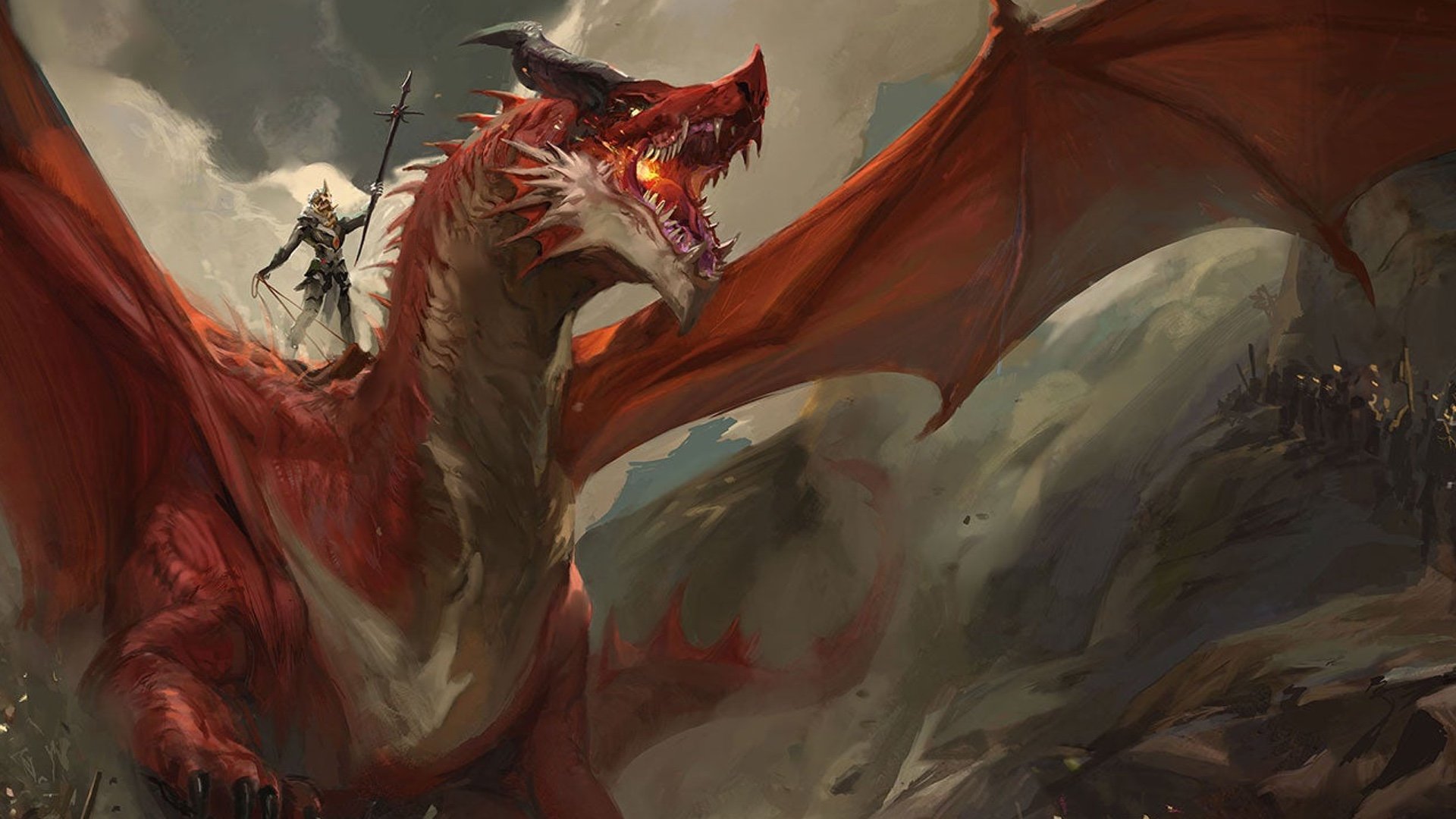Over 26,000 DUNGEONS & DRAGONS Fans Have Signed an Open Letter Condemning The New License
A lot of Dungeons & Dragons fans are extremely upset at Hasbro and Wizards of the Coast and the new license that they are implementing known as the Open Game License, or OGL 1.1. There has been a lot of criticism over this and how it will affect the future of the RPG industry.
There’s now an open letter called 'OpenDND' that’s been released condemning the license rules claiming that it will "dismantle the entire RPG industry." Over the past few days, this letter has garnered more than 26,000 signatures from fans along with industry figures and developers from across the community.
The letter asks for D&D studio Wizards of the Coast to "revoke the draconian 1.1 OGL and pledge to support the existing 1.0 OGL into future editions of their games." It also encourages creators not to sign the supposed license change, which was initially reported on by io9 earlier in January and has since caused the heated controversy.
The open letter lays everything out, and you can read it below:
What is the Open Gaming License?
The Open Gaming License (OGL) is a legal framework that allows creators to use the rules and ideas of roleplaying games in their own works. Initially released in 2000 by Wizards of the Coast, it has become a pillar of the tabletop gaming industry, fueling the popularity and accessibility of games such as Pathfinder, 13th Age, and Dungeons and Dragons 5th Edition.
The OGL has done more to foster creativity and innovation in the tabletop gaming ecosystem than any other element. By allowing creators to use and collaboratively build upon the core mechanics and concepts of existing games, the OGL has created a wide variety of new games and game products, ranging from minor independent releases to large, commercially successful titles.
End of an Open Era
However, Wizards of the Coast (WotC) has announced an updated OGL (version 1.1)—an attempt to dismantle the entire RPG industry. This new license intends to completely revoke the old OGL, a perpetual license designed by WotC themselves to be irrevocable.
Nothing about this new license is “open.” It chokes the vibrant community that has flourished under the original license. No matter the creator, it locks everyone into a new contract that restricts their work, makes it mandatory to report their projects and revenues to Wizards of the Coast, and gives WotC the legal right to reproduce and resell creators’ content without permission or compensation. The new license can also be modified with worse terms or terminated at any time without any recompense by creators.
For the largest creators in the industry, WotC is imposing an impossible tax of 25%—based on their total sales above $750K, not profit. This is anti-competitive, monopolistic behavior designed to crush small businesses that collectively employ hundreds of designers, writers, and artists. Under this tax, it becomes impossible for creators to put books on game stores’ shelves or run Kickstarters for large audiences. Even though this only affects some companies in the space, those targeted are still tiny compared to Wizards of the Coast, which made $1.3 billion in 2021.
On top of that, games such as Pathfinder 1E and 2E, 13th Age, Fudge, and Traveller—which use the 1.0 OGL as the backbone of their existence—will need to cease sales of upcoming products or give WotC 25% of their revenue to stay in compliance with the new license.
Furthermore, under the new license, virtual tabletops (VTTs) cannot operate. They can no longer support OGL systems, and creators can no longer release modules and adventures on popular digital platforms such as Foundry, Alchemy, or Shard.
If this new license gains wide adoption, the tabletop industry will shrink to a fraction of its current size, shuttering the small businesses that populate your local cons and putting a stop to their creations. Innovation in the gaming industry will evaporate; your favorite games will be trapped in the past, instead of being allowed to migrate to your phone, virtual reality, and beyond. Diversity in the industry will shrink away, as projects from marginalized creators are effectively written out of the future.
We expect Wizards of the Coast to attempt expensive and illegal lawsuits to enforce compliance with their new agreement. Even if they aren’t successful in court, they will irrevocably damage the tabletop industry.
#OpenDnD
#OpenDnD is a rallying cry under which creators and fans have unified to demand that WotC revoke the draconian 1.1 OGL and pledge to support the existing 1.0 OGL into future editions of their games. This isn’t an opportunity to litigate and tinker with a new license, but to return to the values of open gaming. Our community deserves an open future if we want our favorite games to not only survive, but thrive!!
If you are a creator, #DontSign the new agreement. If you love roleplaying games, let WotC know we won't support them without an #OpenDnD!
WotC has shown that they are the dragon on top of the hoard, willing to burn the thriving village if only to get a few more gold pieces. It’s time for us to band together as adventurers to defend our village from the terrible wyrm.
I’m not a fan of these changes coming to D&D as they will cripple the industry. It’s crazy to me that Wizards of the Coast is attempting to implement these licensing changes. The only reason that D&D is as big and popular as it is today is because of these content creators! They are the main marketing army of D&D and it doesn’t make any sense to hurt them like this.
